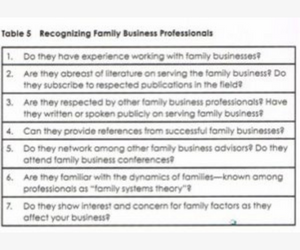Help For Sexual Dysfunction
Sexual Dysfunction is Common
Forty-four percent of women have a sexual complaint. 32% experiencing a lack of desire, 27% not experiencing orgasm, and 21% having pain during sex. Although 44% have a sexual complaint, not all of these women feel distressed about their sexual problem or problems. In the cases where dysfunction isn’t causing distress, it doesn’t meet the criteria for a sexual disorder and generally doesn’t need an intervention. However, when sexual dysfunction is a problem and isn’t treated, it’s associated with decreased quality of life, depression, and interpersonal conflicts.
It’s Critical for the Provider to Indicate That It’s ok to Talk About Sexual Dysfunction
Primary care providers can help, but only if they know there’s a problem. An obstacle to good communication is that a woman may assume that she’s the only one struggling with a sexual problem. A woman can be reluctant to bring up the issue without an idea of how common or treatable it can be. Her provider can and should bring up the topic the same way we ask a woman about other lifestyle areas such as smoking, drinking, and diet.
Consider the Many Possible Causes of Sexual Dysfunction
With a sexual complaint, the provider should take a comprehensive history. The provider should look for medical, psychological, and emotional factors that may be causing the sexual dysfunction. In addition, consider interpersonal relationship issues and sociocultural factors. A detailed sexual history is key to evaluating a woman’s sexual issues. In addition, a thorough physical exam may include an assessment for vulvovaginal conditions and the condition of the pelvic floor.
The Primary Care Provider Can Provide Pratical Information
Sometimes simple, practical information can be a solution. For example, a woman is uneasy about having sex because the kids might come into her bedroom at the wrong moment. The answer? Get a lock on your bedroom door. Or maybe she’s one of the many women who are unaware that lubricants are easily available and may relieve her vaginal dryness during sexual activity. She may need to hear that many women use lubricants, and that in effect, she “has permission” to use them.
Hormonal Birth ControlCan Influence Sexual Function
A common and easily treatable etiology of low desire is hormonal birth control. A woman using hormonal contraceptives may experience a loss of desire if her birth control method significantly decreases her bioavailable testosterone. Measurement of sex hormone binding globulin (SHBG) and total testosterone should be done in the setting of diminished sexual desire. It may suggest the need to change to another kind of contraception to improve her sexual interest.
She May Benefit From A Multidisciplinary Approch
She may benefit from a specialist or a combination of specialists. These may include a medical provider with expertise in sexual health, a sex therapist, or a physical therapist with expertise in pelvic floor disorders. It’s also important to involve her partner.
Pharmacological Treatments Are Available to Those Who Do not Respond to Non-Pharmacological Approaches.
Vaginal dryness can be treated with commercially available lubricants. Low dose vaginal estrogen therapy can improve symptoms of vaginal atrophy and dryness, dyspareunia, and urinary frequency and urgency. Flibanserin can also prove helpful for hypoactive sexual desire disorder; fifty percent of women who use it have a significant clinical response. These responses can include increased sexual desire and an increased number of satisfying sexual events. Without flibanserin, women might average 5 sexual events a month, while enjoying only one-half of them (2.5/month). In premenopausal women responding to flibanserin, the average number of sexual events increases, with mean satisfying sexual events increasing to 7.5 times a month.
The most common side effects of flibanserin are nausea, dizziness, and sedation. Tese can be well-tolerated and managed by dosing at bedtime. One concern with flibanserin is the danger of hypotension or syncope when excessive amounts of alcohol are consumed. The FDA has required that women who are using flibanserin be instructed not to drink. My own belief is that this restriction is unnecessarily broad. In the 6-month flibanserin registration trials, 60% of the women were social or moderate alcohol users, yet only 0.5% of women on flibanserin had episodes of hypotension or syncope. Women on placebo experienced these symptoms at almost the identical rate of 0.3%. This is far lower than the rate of hypotension/syncope in the general population. The FDA has required additional studies on alcohol use that may better articulate appropriate use of alcohol in women taking flibanserin.
Search Blogs
Latest Posts
Ukraine’s Mental Health Crisis & AI Solutions
https://aablanco.substack.com/p/ukraines-mental-health-crisis-and?utm_source=post-email-title&publication_id=1780826&post_id=153290811 Publication –aablanco.substack.com
Tackling Trauma Through Artificial Intelligence
https://www.psychologytoday.com/us/blog/to-end-human-trafficking/202411/tackling-trauma-through-artificial-intelligence Publication –psychologytoday.com
The Diplomat Mitzi Perdue Nantucket Ukraine
https://www.n-magazine.com/the-diplomat-mitzi-perdue-nantucket-ukraine Publication –n-magazine.com
An Explosive Choice: Landmines and Ukraine
https://cepa.org/article/an-explosive-choice-landmines-and-ukraine/ Publication –cepa.org
Subscribe to Updates
About Author

Mitzi Perdue is the widow of the poultry magnate, Frank Perdue. She’s the author of How To Make Your Family Business Last and 52 Tips to Combat Human Trafficking. Contact her at www.MitziPerdue.com
All Articles
Choosing Your Family Business Advisors
Choosing Your Family Business AdvisorsKnow when you need to get help. People often ask me the secret of Frank Perdue’s success. He had to do hundreds of things right. He had to be able to see the big picture as well as be detail oriented. But there was something else:...
Substance Abuse and the Family Business
Substance Abuse and the Family Business When it comes to substance abuse, members of a family business are no more immune than the rest of the population. However, as family business advisor Loyd Rawls points out, the consequences can be more dire because serious...
Infertility: Advances In Treatment
Infertility: Advances In TreatmentAge and Infertility are Linked Infertility affects roughly 12% of women. By the time a woman is in her early 40s, her chance of infertility rises to 20%. It’s a particularly difficult problem for the older woman because the quality...
Career Advice for Young People: Shut Up and Listen!
Career Advice for Young People: Shut Up and Listen! Jack Tatem, a former Perdue Vice President, has some serious advice for young people. It’s simple and it can make a big difference in your career. It has to do with listening. The advice is, “Shut up and listen!” He...
Embedding The Family’s Values by Creating an Ethical Will
Embedding The Family’s Values by Creating an Ethical WillOriginal Article written by Mitzi can be found here. Much as I admired Frank Perdue for his success with his family poultry business, I admired him even more for his success as a family man. Since the happiness...
6-Step Solution to Almost Any Problem
6-Step Solution to Almost Any Problem 1. Describe the Problem. Preferably do this in writing. The act of putting the problem into words can clarify your thinking. 2. Write Down the Obstacles. Although I’m a fan of positive thinking, I’m also a fan of research...





